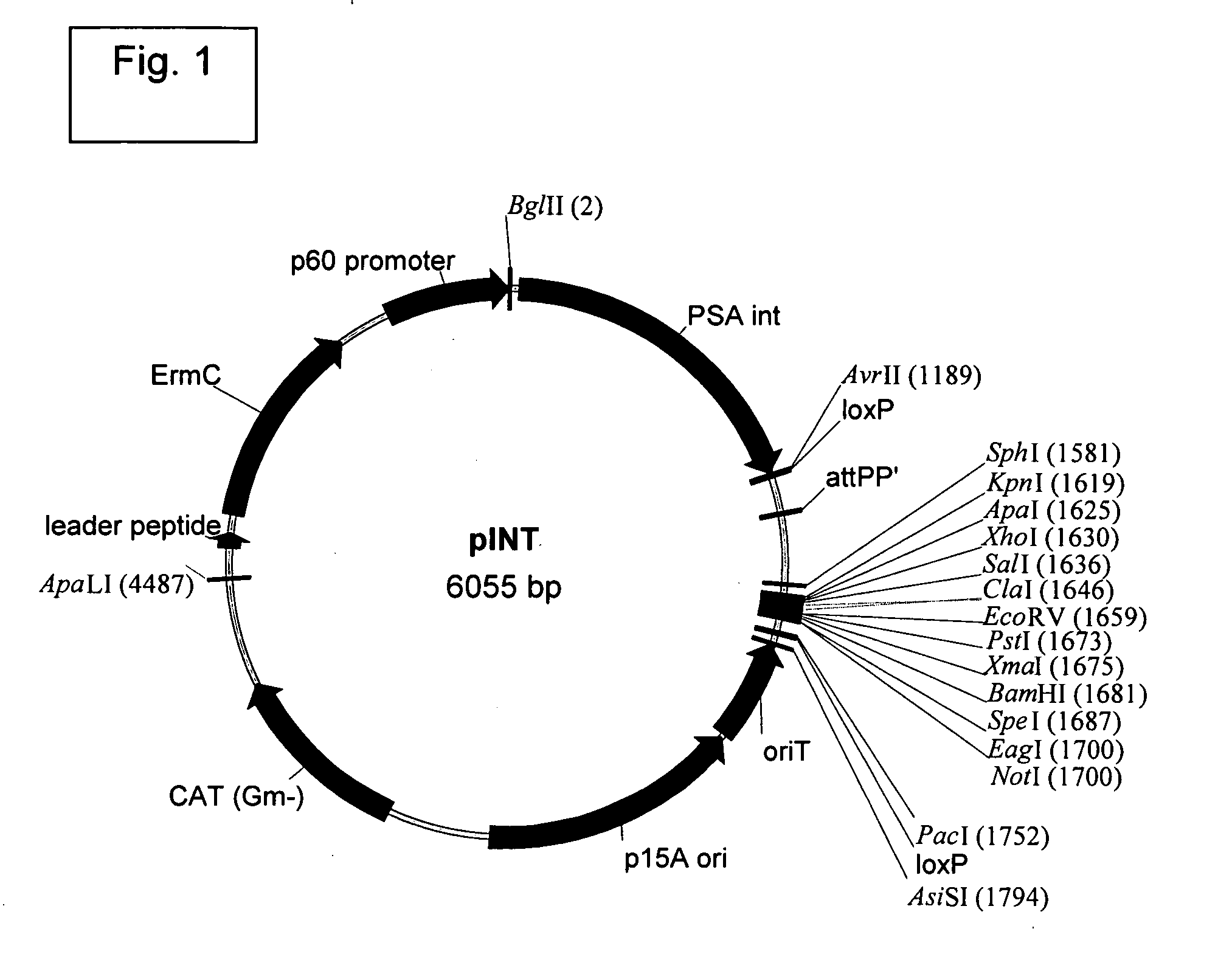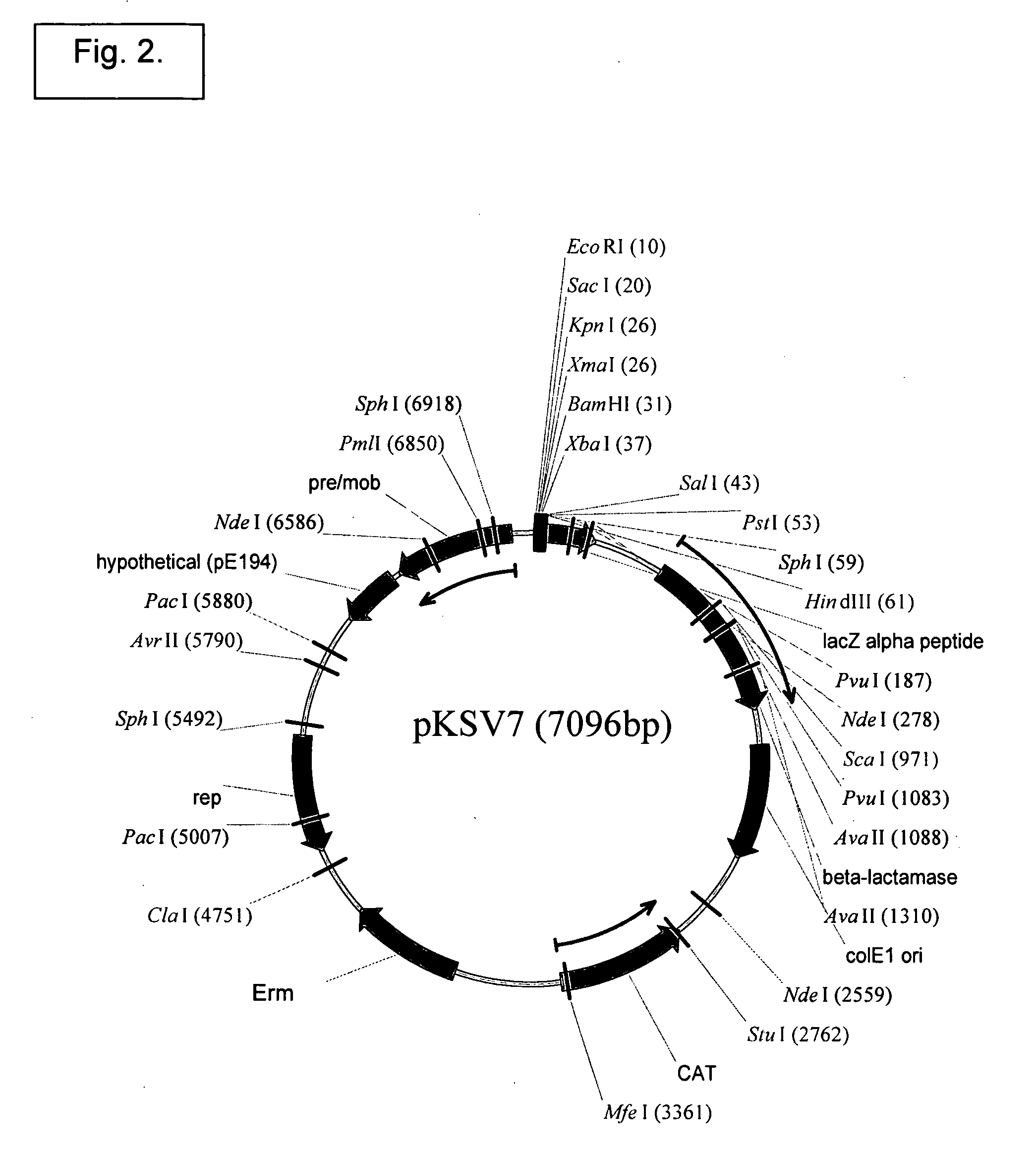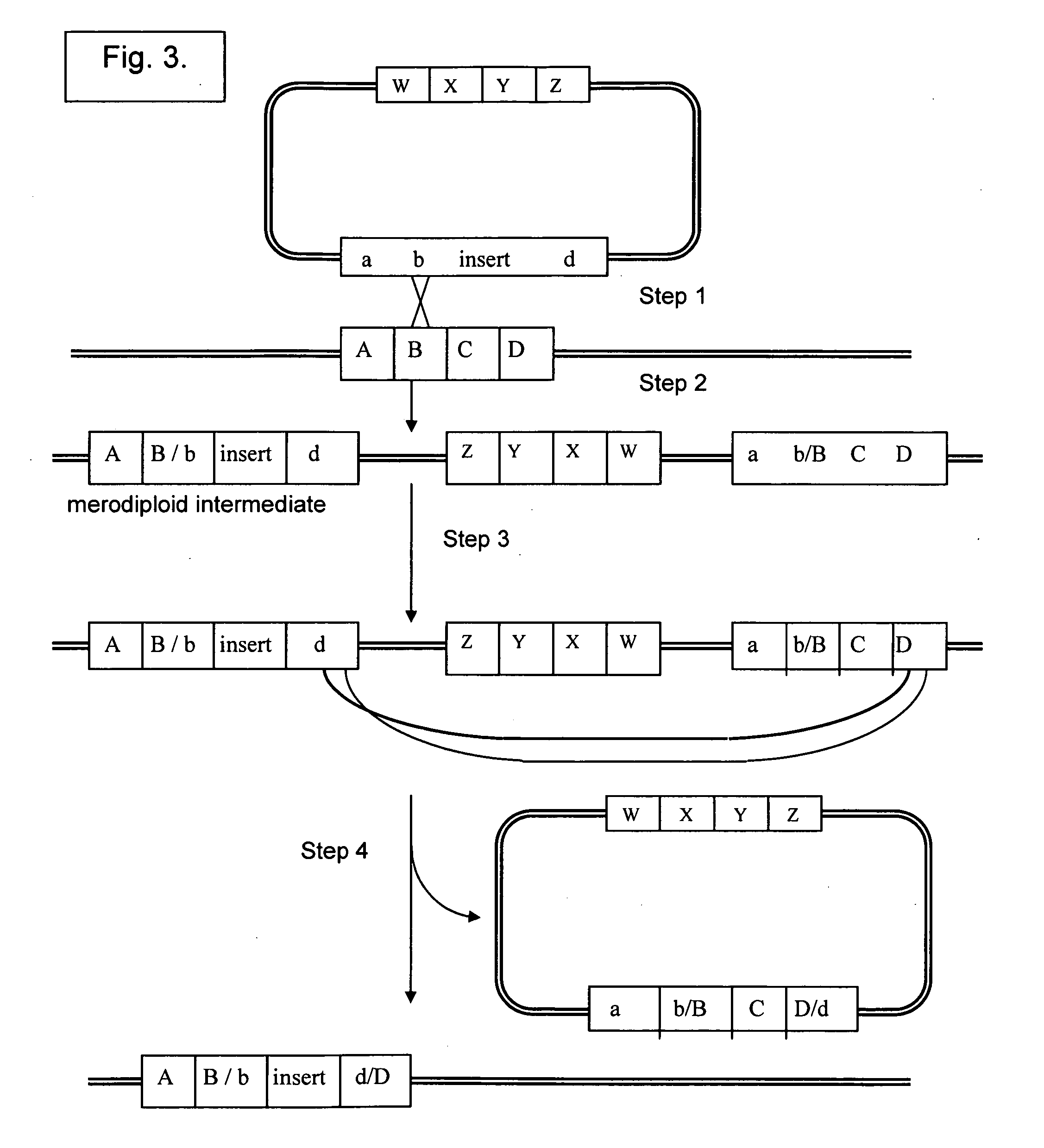Engineered listeria and methods of use thereof
- Summary
- Abstract
- Description
- Claims
- Application Information
AI Technical Summary
Benefits of technology
Problems solved by technology
Method used
Image
Examples
examples
I. General Methods
[0375]Standard methods of biochemistry and molecular biology are described (see, e.g., Maniatis, et al. (1982) Molecular Cloning, A Laboratory Manual, Cold Spring Harbor Press, Cold Spring Harbor, N.Y.; Sambrook and Russell (2001) Molecular Cloning, 3rd ed., Cold Spring Harbor Laboratory Press, Cold Spring Harbor, N.Y.; Wu (1993) Recombinant DNA, Vol. 217, Academic Press, San Diego, Calif.; Innis, et al. (eds.) (1990) PCR Protocols: A Guide to Methods and Applications, Academic Press, N.Y. Standard methods are also found in Ausbel, et al. (2001) Curr. Protocols in Mol. Biol., Vols. 1-4, John Wiley and Sons, Inc. New York, N.Y., which describes cloning in bacterial cells and DNA mutagenesis (Vol. 1), cloning in mammalian cells and yeast (Vol. 2), glycoconjugates and protein expression (Vol. 3), and bioinformatics (Vol. 4)). Methods for producing fusion proteins are described (see, e.g., Invitrogen (2005) Catalogue, Carlsbad, Calif.; Amersham Pharmacia Biotech. (2005...
example ii
Vectors for Use in Mediating Site-Specific Recombination and Homologous Recombination
[0391]The Listeria monocytogenes strains used in the present work are described (see, Brockstedt, et al. (2004) Proc. Natl. Acad. Sci. USA 101:13832-13837). L. monocytogenes ΔActAΔinlB was deposited with American Type Culture Collection (ATCC) at PTA-5562. L. monocytogenes ΔActAΔuvrAB is available from ATCC at PTA-5563. Yeast medium without glucose contained 25 grams / L yeast extract (Bacto®yeast extract) (BD Biosciences, Sparks, Md.); 9 grams / L potassium phosphate monobasic, pH 7.2.
[0392]Homologous recombination can be mediated by pKSV7 (SEQ ID NO:3) (see also, Smith and Youngman (1992) Biochimie 74:705-711; Camilli, et al. (1993) Mol. Microbiol. 8:143-157; Camilli (1992) Genetic analysis of Listeria monocytogenes Determinants of Pathogenesis, Univ. of Pennsylvania, Doctoral thesis).
(SEQ ID NO: 28, pKSV7)CTCGCGGATTGTTGATGATTACGAAAATATTAAGAGCACAGACTATTACACAGAAAATCAAGAATTAAAAAAACGTAGAGAGAGTTTGAAAGAAGT...
example iii
ActA-Based Fusion Protein Partners, Including ActA Derivatives that Are Truncated or Deleted in One or More Motifs
[0395]The present invention, in some embodiments, provides reagents and methods comprising a first nucleic acid encoding an ActA-based fusion protein partner operably linked to and in frame with a second nucleic acid encoding at least one heterologous antigen. Provided is a nucleic acid that can hybridize under stringent conditions to any of the disclosed nucleic acids.
[0396]What is encompassed is a first nucleic acid and second nucleic acid that are operably linked with each other, and in frame with each other. In this context, “operably linked with each other” means that any construct comprising the first and second nucleic acids encode a fusion protein. In another embodiment, the second nucleic acid can be embedded in the first nucleic acid.
[0397]The ActA-based fusion protein partner can comprise one or more of the following. “Consisting” embodiments are also availabl...
PUM
| Property | Measurement | Unit |
|---|---|---|
| Volume | aaaaa | aaaaa |
| Volume | aaaaa | aaaaa |
| Volume | aaaaa | aaaaa |
Abstract
Description
Claims
Application Information
 Login to View More
Login to View More - R&D
- Intellectual Property
- Life Sciences
- Materials
- Tech Scout
- Unparalleled Data Quality
- Higher Quality Content
- 60% Fewer Hallucinations
Browse by: Latest US Patents, China's latest patents, Technical Efficacy Thesaurus, Application Domain, Technology Topic, Popular Technical Reports.
© 2025 PatSnap. All rights reserved.Legal|Privacy policy|Modern Slavery Act Transparency Statement|Sitemap|About US| Contact US: help@patsnap.com



